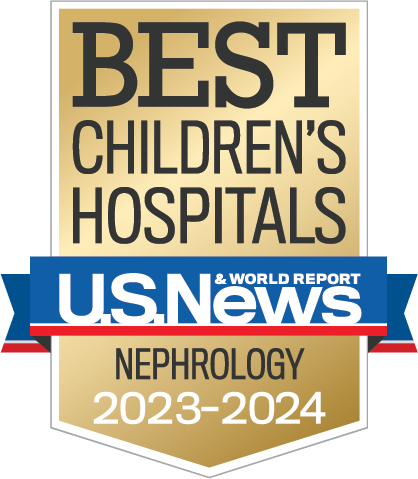- Doctors & Departments
-
Conditions & Advice
- Overview
- Conditions and Symptoms
- Symptom Checker
- Parent Resources
- The Connection Journey
- Calm A Crying Baby
- Sports Articles
- Dosage Tables
- Baby Guide
-
Your Visit
- Overview
- Prepare for Your Visit
- Your Overnight Stay
- Send a Cheer Card
- Family and Patient Resources
- Patient Cost Estimate
- Insurance and Financial Resources
- Online Bill Pay
- Medical Records
- Policies and Procedures
- We Ask Because We Care
Click to find the locations nearest youFind locations by region
See all locations -
Community
- Overview
- Addressing the Youth Mental Health Crisis
- Calendar of Events
- Child Health Advocacy
- Community Health
- Community Partners
- Corporate Relations
- Global Health
- Patient Advocacy
- Patient Stories
- Pediatric Affiliations
- Support Children’s Colorado
- Specialty Outreach Clinics
Your Support Matters
Upcoming Events
Mental Health Town Hall
Tuesday, April 23, 2024Join Children’s Hospital Colorado pediatric experts for a virtual...
-
Research & Innovation
- Overview
- Clinical Trials
- Q: Pediatric Health Advances
- Discoveries and Milestones
- Training and Internships
- Academic Affiliation
- Investigator Resources
- Funding Opportunities
- Center For Innovation
- Support Our Research
- Research Areas

It starts with a Q:
For the latest cutting-edge research, innovative collaborations and remarkable discoveries in child health, read stories from across all our areas of study in Q: Advances and Answers in Pediatric Health.


Kidney
Renal Tubular Acidosis (RTA)
We specialize in the big things, the small things and everything in between.

What is renal tubular acidosis (RTA)?
Kidneys balance acid and base (alkali) in the body. This balance is called pH. All living things need an ideal level of pH; for example, fish in an aquarium can only stay healthy if the pH of the water is right.
Kidneys help your body maintain a proper pH level by getting rid of the acid through urine and keeping the right alkali levels. Too much acid in the body is called acidosis. If the kidneys are causing acidosis, it is because they are either unable to get rid of enough acid through the urine (which is rare), or are losing too much alkali through the urine (more common) in order to help keep the right pH balance in your body.
Kidneys are constantly filtering your blood with thousands of tiny filters called glomeruli. The glomeruli know what should stay in your blood and what should pass through as urine. Each of these tiny kidney filters is attached to a tiny urine drain tube, called a tubule. The tubule filters urine and gets rid of unwanted acid or alkali, keeping the right amounts of both to get the right balance. When a problem in the tubules makes the body too acidic (acidosis), the problem is called renal tubular acidosis (RTA).
What causes RTA?
The main reason that doctors look for RTA in kids is poor growth. All kids need the right body pH to grow well, and too much acid in the body (or too little alkali) results in an imbalanced pH level, which can cause RTA. Some rare diseases can also cause RTA, but in those instances other symptoms will be present.
The most common type of RTA, called Type 2 RTA, is due to a very young kidney allowing too much alkali to be lost from the body through the urine. This will get better with age, usually when a child is 2 to 5 years old.
There are other rare forms of RTA (Types 1, 3 and 4) that your child's doctor can diagnose by a blood test that measures the amount of acid and alkali in the blood and urine. If one of the other more rare forms of RTA is suspected, you will likely be referred to a pediatric kidney specialist (pediatric nephrologist).
Who gets RTA?
All types of RTA can occur for many reasons in all ages, including adults. In children, typically only very young children and infants get Type 2 RTA, which will eventually correct itself over time.
What are the signs and symptoms of RTA?
Children who have RTA typically experience poor physical growth, which can include low weight.
What tests are used to diagnose RTA?
RTA is found by measuring the bicarbonate in the blood. Bicarbonate is the alkali that balances body acid. If bicarbonate is too low, the body needs more to balance body acid. Once it is known that the bicarbonate is low, the cause must be found. There are blood tests that help separate the rare causes from the more common ones. If the kidneys are the cause, then your doctor consults a pediatric nephrologist.
How is RTA treated?
Type 2 RTA is expected to correct on its own as a child grows, as the kidneys "learn" to keep the right amount of base and acid in urine. In some cases, a child with RTA takes a medicine (such as Bicitra or Polycitra) to keep the blood level balanced so the right pH is made. With treatment, weight gain may or may not improve (height is generally not as affected), but the primary goal of taking a medicine is to bring the bicarbonate blood level to normal.
Next steps
-
Would you like to learn more about us?
Learn more about the Kidney Department -
Do you have questions about your child’s condition?
720-777-6263 -
Are you ready to schedule an appointment?
Schedule an appointment
Get to know our pediatric experts.

Bradley Dixon, MD
Nephrology - Pediatric, Pediatrics
Patient ratings and reviews are not available Why?

Margret Bock, MD
Nephrology - Pediatric, Pediatrics
Patient ratings and reviews are not available Why?

Eric Benz, MD
Nephrology - Pediatric, Pediatrics

Melisha Hanna, MD
Nephrology - Pediatric, Pediatrics
Patient ratings and reviews are not available Why?



 720-777-0123
720-777-0123



